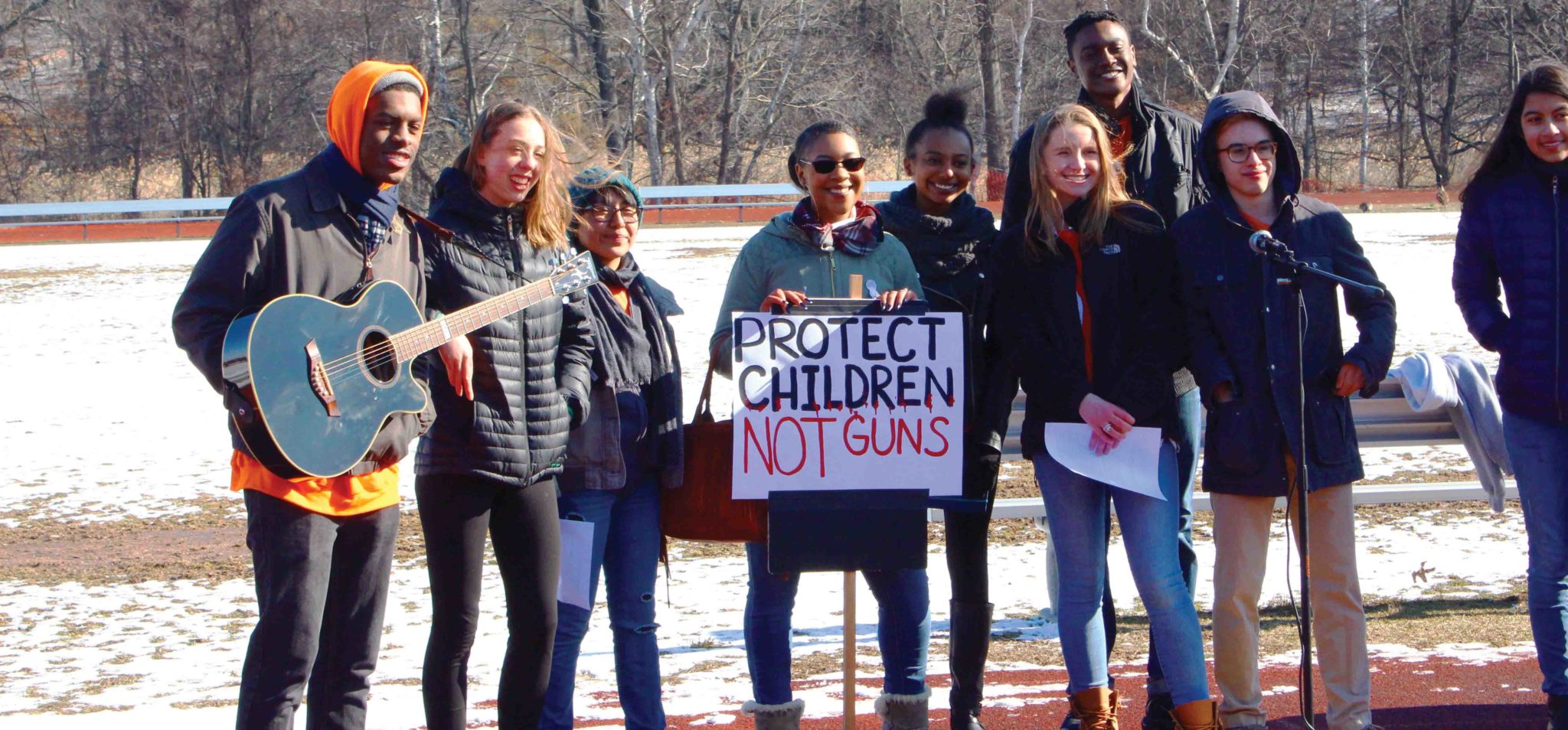
The Proclamation
In response to the February school shooting in Parkland, Florida, New Haven Public Schools administrators and district security officers announced new security measures that same month and hosted a hearing this week.
The New Haven Board of Alders joint Public Safety and Education Committee held a hearing about school safety efforts on Tuesday evening. Officials from the New Haven Police Department and New Haven Public Schools testified about protocol for lockdown, drills and all other school shooting procedures. A task force — comprised of representatives from the Fire Department, Police Department, office of Emergency Management and school system — has already started to implement the updated safety policies.
“We have a lot of technology we’ve worked on to enhance our safety [and] we really wanted to look [at] where did we have some weaknesses … and make some changes easily, and [that is effective if] you bring everyone together to identify some of those weaknesses,” Rick Fontana, chair of the task force and director of emergency operations, told the News.
Fontana said that the task force will bring together different departments in an effort to identify and strengthen weaknesses, using an analysis he called SWOT — identifying strengths, weaknesses, opportunities and threats.
Since February, the district has already implemented new policies. Last month, the task force required that once a fire alarm is pulled in a school — a tactic school shooters sometimes use in attacks — two officers will be dispatched to the location to establish a perimeter. Fontana said that schools where fire alarms have gone off will be prioritized sites because of the threat posed by a potential shooter on the scene.
In addition, the department has made an effort to collect all of the floor plans for each school in the district, and now the department has 37 of the 48 school maps in the district, according to Fontana. New Haven Fire Department Chief and task force member John Alston said that the task force is looking to provide information to teachers, staff and students on ways to protect themselves, such as using textbooks to protect vital organs, distancing themselves from glass and using closets for protection.
But officials emphasized that they are going about the process in a concerted and collective manner, not wanting to cause panic throughout the school system.
“We didn’t want to have a knee-jerk reaction, because the school system right now — believe it or not — has a wonderful plan,” Alston said. “We want to make sure it’s rolled out and we augment the plan that is in place.”
The Police and Fire Departments are willing to financially back some programs, but the school district will likely have to bear the burden of additional costs. Alston said the Fire and Police Departments are willing to absorb training costs for officers and medical staff. Still, Altson said that more funds will be necessary to pay for emergency kits to be placed in schools and for protective equipment for officers, such as bullet-proof vests.
New Haven Public Schools Superintendent Carol Birks told the committee that, although the district is facing budget difficulties, she plans to look at the current staffing structure to see if it would be viable to increase the number of security officers in schools.
Thaddeus Reddish, director of security for the school system, said he has met with principals and teachers and that in many ways, students are more prepared than adults for an emergency.
“In some cases, when we have been doing lockdowns, kids have taken control of the classroom,” Reddish said. “This is a different generation, these children are taking control. They realize this is the reality of the world right now — it’s sad.”
Police and Fire Department officials praised the New Haven Board of Education and Birks for their efforts in assisting the task force in implementing better practices in the schools. New Haven Police Department Chief Anthony Campbell ’95 DIV ’09 said that collaboration across the district on security issues has “never been better.” And Fontana stressed that one of the task force’s main priorities is to correct the “lack of communication” — especially in emergency situations — between departments and schools.
In 90 days, the Board of Alders joint committee plans to follow up with these department heads for further updates on the security plans.
Isabel Bysiewicz | isabel.bysiewicz@yale.edu
Chloe Glass | chloe.glass@yale.edu







